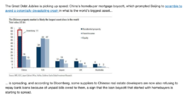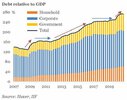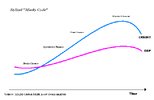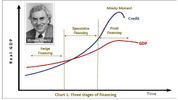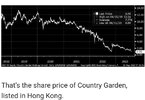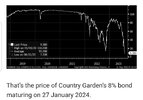- Joined
- 28 May 2020
- Posts
- 6,963
- Reactions
- 13,462
Seems that Evergrande shares hve been placed in a trading halt (again).
From Indian Business Insider
Mick
From Indian Business Insider
Wonder what it is this time?Share of embattled property developer China Evergrande Group were suspended from trading on Monday, a filing from the Hong Kong stock exchange showed.
Trading was also halted in shares of its property services unit, Evergrande Property Services Group Ltd, and electric vehicle unit, China Evergrande New Energy Vehicle Group Ltd, exchange filings showed.
The filings gave no further details.
Evergrande, the world's most indebted developer with over $300 billion in liabilities, has been struggling to repay its suppliers and creditors and complete projects and homes.
Its flagship unit Hengda Real Estate Group Co Ltd secured approval from its onshore bondholders over the weekend to delay a coupon payment due last September to September 2022, according to the company lawyer's filing to the Shenzhen Stock Exchange on Sunday.
Hengda held a meeting with creditors of the 4 billion yuan ($629 million) 2025 bond on March 18-19 to approve the payment of interests incurred between September 2020 to September 2021 to be made in September 2023.
Evergrande has so far avoided technical bond defaults onshore, though it has missed payments on some offshore bonds.
Evergrande shares traded at HK$1.65 before the suspension. They have gained 3.8% this year after plunging 89% in 2021.
Mick

